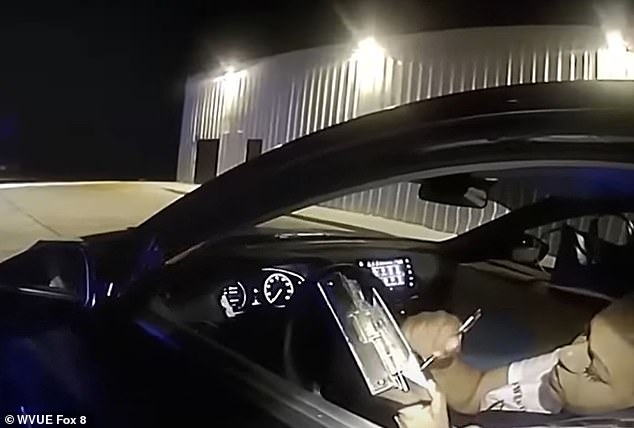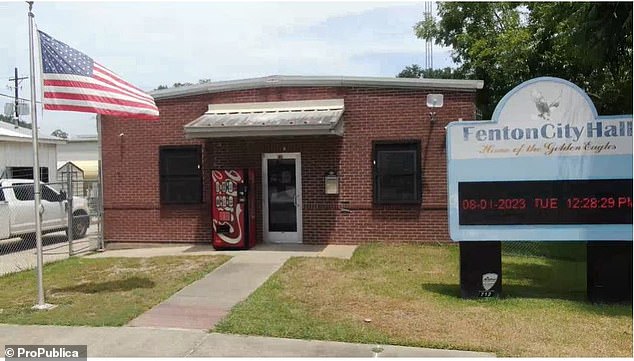The tiny town that runs off traffic fines: Louisiana street with just 226 people pulls in over $1MILLION per year from targeting drivers that runs the village (and if you want to appeal you have to go through the Mayor)
A small town in Louisiana with 226 residents raised more than $1 million in one year – as much as Louisiana’s third-largest city, which has nearly nine times the population when it comes to drivers.
Located in Jefferson Davis Parish, Fenton has only one main road, one library, one gas station and one town hall.
As of June 2022, a whopping $1.3 million was generated through fines and forfeitures, as much revenue as Shreveport, which has a population of 187,000.
Audits showed that the small town derived its revenue primarily from traffic tickets, more than almost any other municipality in Louisiana in a single year. ProPublica reported.
Those having trouble with their tickets or fines should appeal to Fenton Mayor Eddie Alfred, Jr., who appears to be serving a dual role.
He is responsible for the city’s finances and also the city’s judge. As a judge, he appoints the prosecutors, and if drivers request a trial, he decides whether they are guilty or innocent.
The fines were collected through the ‘mayor’s court’. The goal is to process the thousands of speeding tickets issued annually by Fenton Police Department officers.
The city of Fenton, located in Louisiana’s Jefferson Davis Parish, consists of approximately twenty blocks. The mile-long stretch of highway runs between central Louisiana and eastern Texas along US Route 165

In the photo, a female driver is stopped by an officer (not pictured) from the Fenton Police Department

Pictured: Fenton Mayor Eddie Alfred Jr., who is responsible for the city’s finances and also serves a dual role as the city’s judge
The collected revenue reportedly contributes to part of the salaries of the mayor, clerk and others, the news channel revealed.
The village in Jefferson Davis Parish consists of about twenty blocks. The small town has a town hall, a gas station, a church, a library, a dollar store and some public housing.
Those driving along the mile-long highway – located between central Louisiana and east Texas along US Route 165 – are city dwellers or those traveling from central Louisiana to east Texas.
Mike Holmes, Fenton’s village attorney, told WVUE-TV and ProPublica in an email that the mayor presides over the court in a “neutral, impartial manner,” in accordance with Louisiana law.
He also claimed that tickets are rejected only at their discretion.
However, the village’s court records tell a different story about how some tickets are handled, revealing the challenges they faced in finding answers.

The small town earned its revenue primarily from traffic tickets, more than almost any other community in Louisiana in a single year
Journalists from WVUE and ProPublica, trying to figure out how exactly the court in Fenton works, visited the city four times. During those visits, they reviewed court records, city council meeting minutes, municipal ordinances and body camera footage.
They also requested electronic case summaries over a three-and-a-half year period. Although they attempted to see the court in action, they reported that they were only able to witness the court once. They also noted that they were only allowed to speak with the mayor for five minutes.
Many officials offered conflicting explanations for the mayor’s role, how and why tickets are reduced or dismissed, why the city is asking the state to revoke driver’s licenses and how often trials are held.
Their description of how the city runs its court did not match the State Judicial College guidelines or the U.S. Supreme Court ruling.
Joel Friedman, a professor emeritus at Tulane University in New Orleans who has taught trial law for 46 years, told ProPublica: “There is no accountability. They can do whatever they want.”
“The mayor who is trying to raise money for the city is responsible for prosecuting these minor crimes and bringing fines back to the city,” he added.
Another attorney, who wrote a book about the case, agreed with Friedman and told the news station that Fenton should not allow the mayor to preside over the court.
